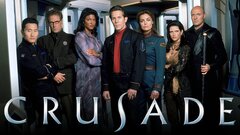Alison Lohman made her first impression on Hollywood thanks to bad parents - an incarcerated murderer mother (Michelle Pfeiffer) who leaves her to foster care in "White Oleander" (2003), and a con man (Nicolas Cage) who doesn't even know he has a daughter in "Matchstick Men" (2003). The actress played teenagers well into her twenties, scoring a family hit with "Flicka" (2006), before segueing into adult roles in Susanna Bier's "Things We Lost in the Fire" (2007) and Sam Raimi's "Drag Me to Hell" (2009), where Lohman's assertive performances made all the more impact when paired with her youthful, down-to-earth appeal.
Born Alison Marion Lohman in Palm Springs, CA, on Sept. 9, 1979, Lohman showed an interest in acting and singing while very young, landing her first professional role in a production of "The Sound of Music" at the age of nine. Two years later, she was making her debut as a leading lady in "Annie," which earned her an Outstanding Actress Award from the Desert Theater League. By age 17, Lohman was acting in local theater on a regular basis and providing backup vocals for national touring acts like Frank Sinatra and Bob Hope. Her obvious wealth of talent won her a scholarship to New York University's Tisch School of the Arts, but instead, Lohman headed for Los Angeles after graduating from high school in 1997 to pursue acting on a full-time basis.
For the next few years, Lohman appeared in low-budget and independent features and television series. Most, like "Kraa! The Sea Monster" (1998) and "Planet Patrol" (1999), were unmemorable at best, but she did make her way onto three short-lived network television series: Aaron Spelling's "Safe Harbor" (The WB, 1999), "Tucker" (NBC, 2000) and Mike White's primetime soap parody, "Pasadena" (Fox, 2001), all of which afforded her additional exposure. Clearly, someone had seen her work in the shows, because by 2003, she had moved from unknown newcomer to up-and-comer status with the film adaptation of the best-selling novel "White Oleander." Though the film did only fair box office business, critics and audiences alike were wowed by her brave performance as the daughter of imprisoned murderess Michelle Pfeiffer. Adding to the challenge of co-starring with Pfeiffer and Renee Zellweger, was the fact that Lohman had to wear wigs throughout her entire time onscreen. Prior to signing on to "White Oleander," she had filmed a small role as a cancer patient in the Kevin Costner fantasy, "Dragonfly," for which she was required to shave her head. Her scenes were later cut from the theatrical version of that film.
The press was also taken aback by her turn in her next feature, Ridley Scott's "Matchstick Men" (2003), in which she played the estranged teenaged daughter of Nicolas Cage's sadsack con man. Again, the film performed only moderately well, but Lohman received the lion's share of the positive reviews, many of which focused on her ability to convincingly play a 14-year-old girl despite being 24 years old in real life. Lohman sparkled amidst a cast of top-notch talent that included Albert Finney, Billy Crudup, Danny Devito, and Jessica Lange, in Tim Burton's extravagant fantasy, "Big Fish," in which she played the object of Ewan MacGregor's affections in flashbacks.
Lohman remained off the big screen for 2004; her sole credit was providing a voice for the English re-dubbing of the popular Japanese anime feature, "Nausicaa of the Valley of the Wind" (1994). The following year, she starred in her most mature role to date, that of a journalist who becomes sexually entangled with the partners of a former comedy team while trying to unravel the story behind their break-up in, "Where the Truth Lies" (2005). The film was roundly panned, and Lohman, who was involved in some fairly graphic sex scenes in the film received the lion's share of the bad reviews, which essentially described her as amateurish and out of her league. Her next feature, a black comedy titled "The Big White," starred such respected actors as Robin Williams, Holly Hunter, Woody Harrelson and Giovanni Ribisi, but never saw a theatrical release. Lohman was quickly gaining a reputation as an actress whose work was highly regarded, but rarely seen.
In 2006, the 27-year-old Lohman gave another convincing performance as a teenager, this time in a film version of the young adult classic "Flicka," about a teen girl who develops a strong bond with a wild mustang. The film performed moderately well, and critics were suitably impressed by her onscreen work (Lohman had never ridden a horse prior to appearing in the picture), but the film itself was marred by a minor controversy involving the deaths of two horses during production. Lohman also took an agreeable turn into comedy as a pop star that falls for a photographer in Tom DiCillo's "Delirious" (2006). In her first certifiable blockbuster, Lohman lent her likeness and voice to the role of a young mistress of elder king "Beowulf" (2007) in Robert Zemeckis' stop-motion animated adaptation of the epic poem, which was an international hit.
On a different note, she turned around and gave a supporting performance in an entirely different type of film, Susanna Bier's starkly realistic domestic drama "Things We Lost in the Fire" (2007), in which she played a recovering drug addict alongside dramatic powerhouse Benicio Del Toro. Lohman continued on her track of decidedly darker roles by starring as a heartless loan officer who has a curse cast upon her in Sam Raimi's horror thriller "Drag Me To Hell" (2009), and joining the "Crank" (2006) team of Mark Neveldine and Brian Taylor for their futuristic sci-fi actioner "Citizen Game" (2009), which found her leading a resistance group against the dystopian practice of using remote controlled, computer chip-implanted convicts to play violent games.
















































































































